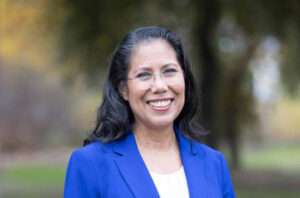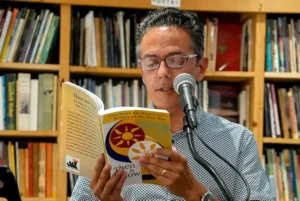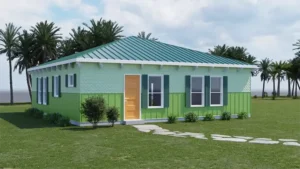
Photo by Keyshawn Davis
CLTRE Executive Director Roshaun Davis stands outside of the CLTRE Club in Midtown Sacramento during a “CLTRE, Coffee and Conversations” event on May 1, 2024. The organization recently acquired a new site on Del Paso Boulevard in North Sacramento
CLTRE, a nonprofit creating pathways for economic development and homeownership in underserved communities, has secured a new site for affordable housing and retail development on Del Paso Boulevard in North Sacramento.
The organization bought the land at market rate, which includes three vacant parcels and one with an old building. For this “Del Paso Boulevard Revitalization project,” as they’ve named it, CLTRE is helping in a larger effort to revitalize the Marysville-Del Paso Boulevard corridor.
CLTRE’s project is part of the Forward Together action plan, which the Sacramento City Council unanimously approved April 30 as a community-led way to improve the corridor.
“District 2 has been historically disinvested, now it is time to change this,” said District 2 Councilmember Shoun Thao, in a news release after the vote. “This is just the beginning, and this plan is a catalyst to more investment into the community.”
CLTRE Executive Director Roshaun Davis said the purchase of the land is just phase one of revitalization efforts for the area, which will include 75 affordable housing units and about eight live-workspaces. He said there are multiple phases to ultimately build about 600 units of affordable housing units on Del Paso Boulevard.
Davis said part of CLTRE’s mission is to shift Sacramento’s cultural landscape by 2040. “That’s big vision, but that’s where we’re moving into,” he said. “Putting all those units on the boulevard will then put businesses [there] and then, obviously, [we’ll] try whatever we need to do to keep the businesses on the boulevard that are already there.”
Daniel Savala, executive director of the Del Paso Boulevard Partnership, said CLTRE securing the land in North Sacramento is a “really great sign.”
“Anytime we see an acquisition on a place like Del Paso Boulevard and people are looking to make an investment — it’s a big deal, right?” Savala said. “Because it means that we’re doing our job in making sure that Del Paso Boulevard remains as a desirable place to do business.”
Savala said the importance of the site being secured is that it signifies confidence in the market that doing a project on the boulevard is a worthwhile investment from a development standpoint.
“These are former redevelopment properties that the state owned and the city owned that were intentionally [meant] for redevelopment,” Savala said of unused and undeveloped parcels on Del Paso Boulevard. “When those sit on the market for years, it sends a bad message that there’s not a viable return on investment. People are looking at Del Paso Boulevard as a place to do business, to open up a business [and] to develop a property.”
While CLTRE’s completion of its new affordable housing development is estimated to take a couple of years, Davis suggests that people who are interested in living in them should connect with his organization sooner rather than later.
“Through the programs that we have, we understand that the ultimate goal is ownership, but we’re creating pathways all the way through,” Davis said. “So if you can live in an apartment that’s a little bit more affordable, then come to one of our programs.”
CLTRE launched a first-time homebuyer program called CTLE Keeper in September 2023 that teaches people how to own homes in the neighborhoods they grew up in, helping to combat displacement.
Davis, a Sacramento native, said he wants to see the city heal and thrive, and sees the acquisition of the new site as an example of community-led change. “If not us, then who?” he said. “If we don’t get into these spaces, then who gets into these spaces of ownership?” Davis said. “I think that’s where the importance comes in, is just really understanding [that] it takes us to build us up.”
Savala said affordable housing is needed more than ever, along with jobs that pay a livable wage.
“When you say you’re building affordable housing, people start freaking out,” Savala said. “And you just start to think about what workforce housing, where [do] the teachers live? Where do wait staff who work in our restaurants — front of the house, back of the house staff — or hotel employees [live]? Where are [they] supposed to live? Why can’t they have an affordable place to live, pay their rent [and ]have money to save? Is that such a bad thing to advocate for?”


















